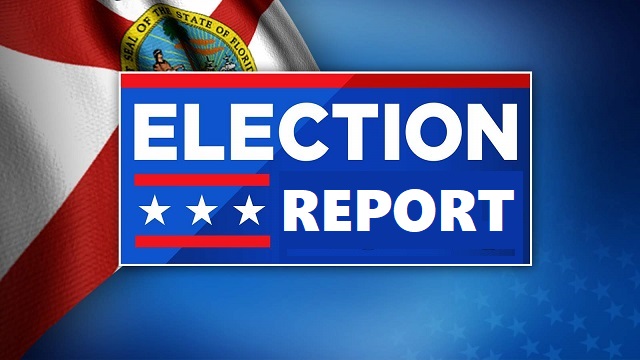December 2022 Florida County Republican Registrations Report

This Florida County Republican Registrations Report is for voter registrations through the end of December 2022. Florida Republicans continue the trend of making gains as Republican registrations relative to Democrat registrations increased by 28,070 registrations in December and 72,686 since the book closing for the 2022 general election. Florida Republicans now have a 378,636 relative registrations advantage over the Democrats. Republican registrations were 36.53% of total registrations and Republicans now enjoy a 2.50% of total registrations advantage over the Democrats (click here to see tables and charts).
The Democrats now have less registrations than they had at the time of the 2022 election book closing, while the numbers of Republican and other registrations both fell slightly this past month (see Chart 1).
There may be discrepancies in the registration numbers for Polk and Volusia Counties. The cause of the discrepancies is believed to be the difference between active registered voters and all registered voters. Most of the registration data is taken from each county’s supervisor of elections websites, which appear to mostly post the number of active registered voters. The discrepancies come from inability to remember which category was chosen in the previous month.
The $1,700,000,000 Omnibus Spending Bill Passed by the Lame Duck Legislature
This report has historically found fault with Republicans in the U.S. Senate where significant numbers of Republican senators vote with the Democrats if they are not soon up for reelection, or if they are retiring. The recent $1.7T Omnibus Spending Bill passed, untraditionally, by a lame-duck legislature, again provides ample reason to continue to question the senators’ political allegiances.
The following are the Republican senators who voted for passage of the $1.7T Omnibus Spending Bill along with their next election year: Blount-Retiring Lame Duck, Boozman-2028, Capito-2028, Collins-2026, Cornyn-2026, Cotton-2026, Graham-2026, Inhofe-2026, McConnell-2026, Moran-2028, Murkowski-2028, Portman-Retiring Lame Duck, Romney-2024, Rounds-2026, Shelby-Retiring Lame Duck, Thune-2024 (Fox News has reported that Thune is considering retirement), Wicker-2024, and Young-2028.
Add to these senators the four senators who voted to bring the $1.7T Omnibus Spending Bill to the floor, which requires 60 votes, but then who voted against the final $1.7T Omnibus Spending Bill, which only required 50 votes to become law. Using this tactic allows these senators to claim that they didn’t vote for passage of the $1.7T Omnibus Spending Bill, which is technically true, but deceiving. The following Senators were instrumental in allowing the $1.7T Omnibus spending Bill to move to the floor: Grassley-2028, Hyde-Smith-2026, Rubio-2028, and Tuberville-2026.
The Constitution originally had national senators being chosen by the state legislatures and not by popular vote. The Constitution was structured this way so the senators would have their state’s best interest at heart. The changing of The Constitution to elect senators by popular vote took place in 1913 with the adoption of the 17th Amendment.
The popular vote will rightly continue to decide the states’ national senator elections, but the state government should have the ability to easily recall their senators and hold new elections! Being recalled would be appropriate for one of Florida’s two U.S. Senators not named Rick Scott.
Past Unresolved Recommendations and the $1,700,000,000 Omnibus Spending Bill Passed by the Lame Duck Legislature
The allowing of open primaries to determine election outcomes strongly favors those Republican candidates who most align with non-Republican voters. This becomes problematic when Republicans are elected and partake in creating policies which relatively grow Democrat favoring demographics. Having elections decided at the primary level also fills the Republican political pipeline from which candidates for higher office (in this discussion national senate seats) are often chosen. Republicans then end up with senators who tend to align politically with the Democrats and the Republican Rank-and-File are then represented by people with whom they politically have little in common.
It is recommended:
- That Republicans change election laws to assure elections are never decided at the primary level.
- That School Board elections be partisan.
- The state legislature should be able to easily recall national senators and call for new elections to replace the recalled senators.
©Stephen R. Meyer. All rights reserved.


Leave a Reply
Want to join the discussion?Feel free to contribute!